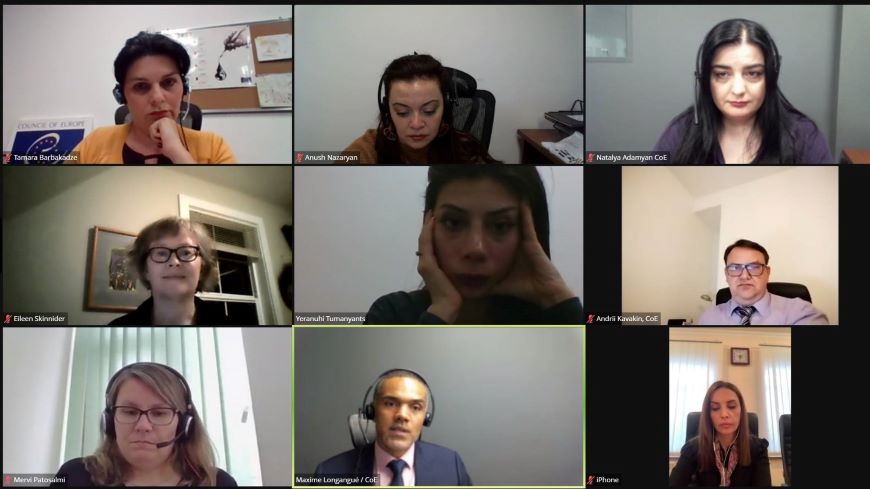On 29 October 2021 the online presentation of the report on ''Gender Impact Assessment: the Judicial Code of Armenia and its Derivative Legal Acts” took place in the framework of the project ''Support to the judicial reform – enhancing the independence and professionalism of the judiciary in Armenia.''
One of the Project’s components is focused on mainstreaming gender equality considerations in the judiciary. A vital entry point for this is to ensure that the Judicial Code of Armenia and the deriving legal acts provide for a gender-responsive legal framework.
To contribute to the gender mainstreaming in the local legislation Gender Impact Assessment (GIA) of the Judicial Code of Armenia and several deriving legal acts was conducted by the international consultant of the Council of Europe within the framework of the Project. The central question that GIA asks is whether the Judicial Code of the Republic of Armenia and the deriving legal acts reduce, maintain or increase the gender inequalities between women and men. The report tries to estimate different effects - positive, negative or neutral of the laws in terms of gender equality.
After the presentation of the report and its main findings, the discussions were hold on the issues of tokenism, the practice that makes only symbolical efforts of parity to give the appearance of gender equality within a workforce and the importance of critical mass that is needed to begin advocating for substantial changes important for women, presenteeism and the changes brought by COVID, as well as the significance of judicial statistics and gender budgeting. The presentation was concluded with main recommendations and proposals made by the international consultant.
The online presentation was attended by the representatives of the Ministry of Justice, Supreme Judicial Council, Court of Cassation, Civil Court of Appeal, First Instance Court of General Jurisdiction of the city of Yerevan, First Instance Court of General Jurisdiction of Aragatsotn region, First Instance Court of General Jurisdiction of Syunik region, Academy of Justice, the International Labour Organization, local NGOs, advocates, lawyers and gender experts.
This event was organised in the framework of the project ''Support to the judicial reform – enhancing the independence and professionalism of the judiciary in Armenia,'' funded by the European Union and the Council of Europe in their Partnership for Good Governance II (2019-2022).





